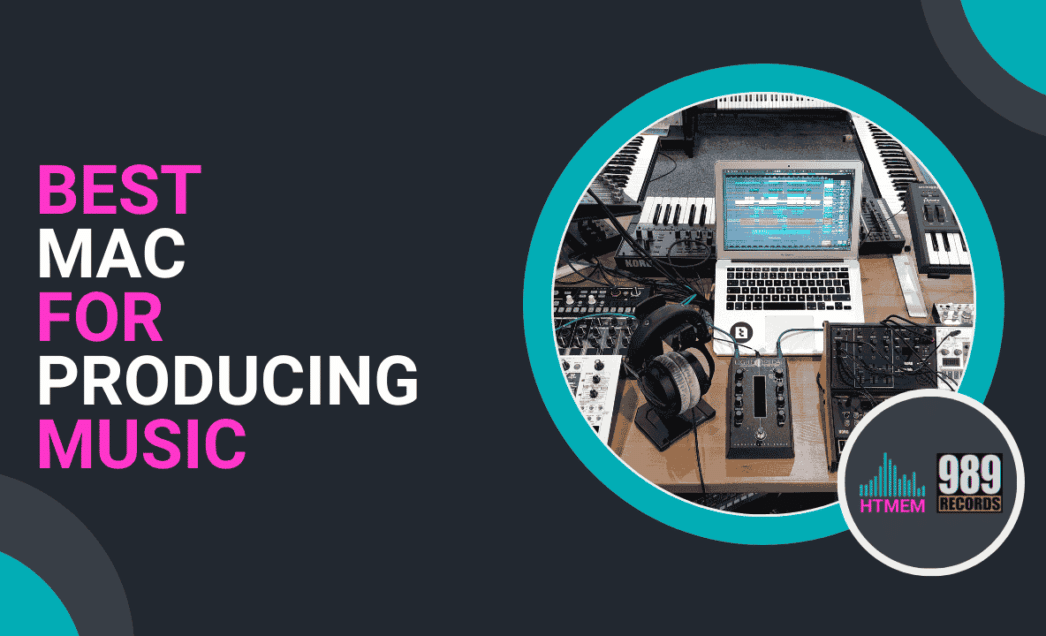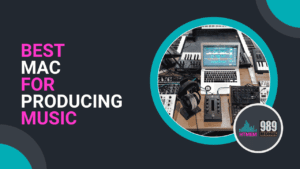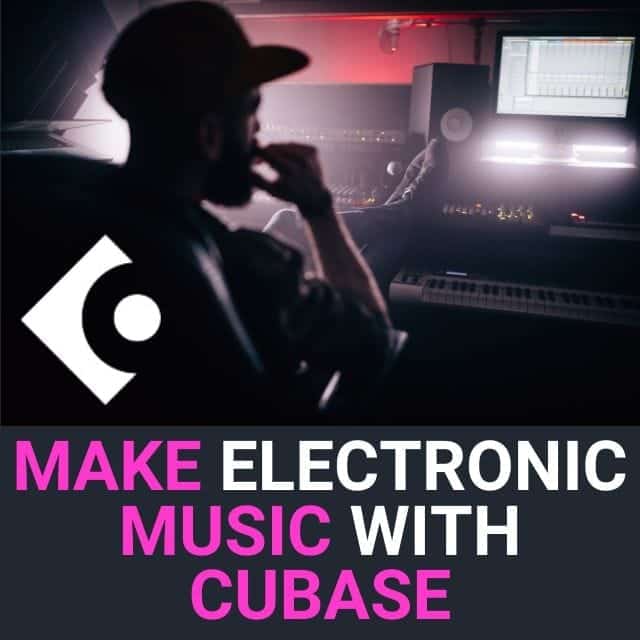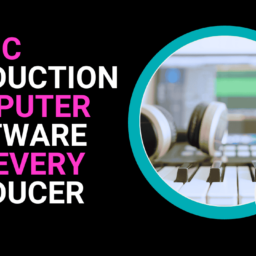Why Use a Mac for Music Production
Macs have long been a favorite among music producers, and for good reason. Their ease of use and powerful processing capabilities make them an ideal choice for music production. These machines are not only perfect for creating music but also excel in video editing and other creative tasks.
The seamless integration with other Apple devices and software within Apple’s ecosystem further enhances their appeal, allowing music producers to work efficiently across multiple platforms.
Choosing the Right Mac for Music Production
Selecting the right Mac for music production involves considering several key factors. While other models, such as the MacBook Pro and iMac, may receive more attention, the Mac Studio offers significant power and capabilities for serious music production tasks. Processing power is crucial as it determines how well your Mac can handle demanding audio software and large sample libraries. RAM and storage are equally important, impacting the number of tracks and audio files you can work with simultaneously. Portability is another factor to consider, especially if you need a laptop for on-the-go music production. It’s essential to determine your budget and specific needs to narrow down the options. Researching and comparing different Mac models will help you find the best fit for your music production requirements.
Processor and Performance
When it comes to music production, a powerful processor is essential for handling demanding tasks such as recording, editing, and mixing. Apple’s latest M processors offer improved performance and efficiency, making them ideal for music production. The M Pro and M Max processors are particularly well-suited for high-end audio work, offering up to 16 CPU cores and 40 GPU cores. This means you can run multiple digital audio workstations (DAWs) and plugins simultaneously without experiencing lag or crashes.
In addition to the processor, the performance of your Mac also depends on the amount of RAM and storage. A minimum of 16GB of RAM is recommended for music production, but 32GB or 64GB is even better for more demanding projects. More RAM allows you to work with larger sample libraries and more complex arrangements without slowing down your system. Storage is also critical, with a minimum of 512GB of storage recommended and up to 8TB for more extensive projects. Having ample storage ensures you can save all your audio files, projects, and software without running out of space.
Mac Models for Music Production
The Mac Mini stands out as a compact and affordable option for music production. Despite its small size, it offers robust processing power and ample storage options, making it a great machine for music producers who prioritize space-saving solutions. Its affordability makes it accessible for those starting in music production without compromising on performance.
Mac Studio for Music Production
For those seeking a high-end option, the Mac Studios offers significant power and capabilities for serious music production tasks. It boasts powerful processing capabilities and ample storage, making it suitable for professional studios. Its compact design and multiple ports allow for easy connection to audio interfaces and other devices, making it ideal for professional music producers who demand a powerful and reliable machine.
MacBook Options for Music Production
When it comes to laptops, both the MacBook Air and MacBook Pro models offer excellent portability and processing power. The MacBook Air is perfect for music producers who need a lightweight laptop for less demanding tasks, while the MacBook Pro is better suited for more intensive audio work. With options for larger screens and more RAM, MacBook Pros cater to those who require more power for complex projects.
Mac Comparison Chart for Music Production
The table is best viewed on a desktop monitor for optimal clarity.
| Model | Portability | CPU Power | HDD Options | Price | For |
|---|---|---|---|---|---|
| Mac Mini | Low | High | Moderate | $$$ | Beginners, space-saving setups |
| Mac Studio | Moderate | Very High | High | $$$$ | Professional, studios |
| MacBook Air | High | Moderate | Moderate | $$$ | On-the-go, lightweight tasks |
| MacBook Pro | High | High | High | $$$$ | Intensive audio work |
Additional Features to Consider
In addition to the processor, RAM, and storage, there are several other features to consider when choosing a Mac for music production. One important aspect is the display quality. A high-resolution screen can make a significant difference when working on detailed audio editing and mixing tasks. Macs like the MacBook Pro and iMac offer Retina displays, which provide sharp and vibrant visuals, making it easier to see every detail of your project.
Another feature to consider is the battery life, especially if you opt for a Mac laptop. The MacBook Air and MacBook Pro models are known for their impressive battery life, allowing you to work on your music projects for extended periods without needing to recharge. This is particularly useful for music producers who travel frequently or work in different locations.
Additionally, consider the compatibility of your chosen Mac with various audio software and hardware. Ensure that your Mac can seamlessly integrate with popular digital audio workstations (DAWs) like Logic Pro, Ableton Live, and Pro Tools, as well as with audio interfaces and MIDI controllers. This compatibility is crucial for a smooth and efficient music production workflow.
Portability and Connectivity
If you’re always on the go, a portable Mac laptop may be the best choice. The MacBook Air and MacBook Pro are both great options, offering a balance of portability and performance. The MacBook Air is incredibly lightweight, weighing just 2.75 pounds and measuring 0.68 inches thick, making it perfect for music producers who need to work from different locations. The MacBook Pro, while slightly heavier at 3.02 pounds and 0.61 inches thick, offers more power and is better suited for intensive audio work.
If you’re studio-based, a desktop Mac may be more suitable. The Mac mini and Mac Studio are both excellent options, offering a compact design and plenty of connectivity options. The Mac mini is a space-saving solution that doesn’t compromise on performance, while the Mac Studio provides exceptional power and multiple ports for professional setups. Both models are ideal for connecting to external displays, audio interfaces, USB instruments, and other peripherals.
Connectivity is also important for music production, as you’ll need to connect your audio interfaces, USB instruments, and headphones to your Mac. Look for a Mac with multiple ports, such as the MacBook Pro or Mac Studio, which offer a range of USB-A, USB-C, and Thunderbolt 3 ports. These ports ensure you can connect all your essential gear without needing additional adapters or hubs.
Overall, when choosing a Mac for music production, it’s essential to consider your specific needs and preferences. Whether you’re a professional music producer or just starting out, there’s a Mac out there that’s right for you.
Additional Suggestions
- Mac Mini: Ideal for those who want a desktop solution without taking up much space. Pair it with external displays for more screen real estate.
- Mac Studio: This is Perfect for professional studios requiring more power and multiple connections, thanks to its extensive ports.
- MacBook Air: Offers longer battery life, making it suitable for music producers who travel frequently.
- MacBook Pro: Choose this if you need a bigger screen and more RAM for handling large sample libraries and complex projects.
Resources for Further Reading
To help you make an informed decision when choosing the best Mac for music production, consider exploring the following resources:
- Apple’s Official Website: Check out the latest specifications and features of Apple Macs, including Mac Mini, Mac Studio, MacBook Air, and MacBook Pro models. Visit Apple’s Mac Page for more information.
- Music Production Forums: Engage with fellow music producers on forums such as Gearslutz and Reddit’s r/WeAreTheMusicMakers. These platforms provide valuable insights and user experiences with different Mac models.
- YouTube Reviews: Watch detailed reviews and comparisons of Mac models for music production on YouTube channels like Linus Tech Tips and MusicTechHelpGuy. These reviews often include performance tests and real-world use cases.
- Audio Software Compatibility: Ensure your chosen Mac is compatible with popular digital audio workstations (DAWs) like Cubse Logic Pro, Ableton Live, and Pro Tools. Check the official websites of these DAWs for system requirements: Logic Pro, Ableton Live, Pro Tools.
- Professional Music Producer Blogs: Follow blogs and articles by professional music producers who share their experiences and tips on using Macs for music production. Websites like Sound On Sound and MusicRadar offer expert advice and recommendations.
By leveraging these resources, you can gather comprehensive information and make a well-informed choice about the best Mac for your music production needs.
Conclusion
Apple provides a diverse range of Mac models suitable for music production, from the compact Mac Mini to the powerful Mac Pro. When selecting a Mac, it’s important to consider your budget, needs, and preferences. With the right Mac, you can create high-quality music and elevate your music production to the next level. Whether you’re a budding music producer or a seasoned professional, there’s a Mac that fits your music-making needs perfectly.
Suggested Readings
Practice and Enjoy








